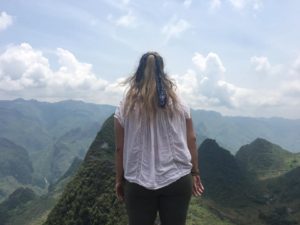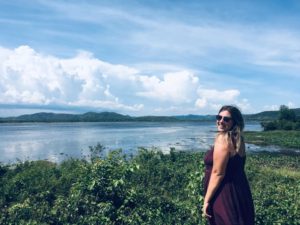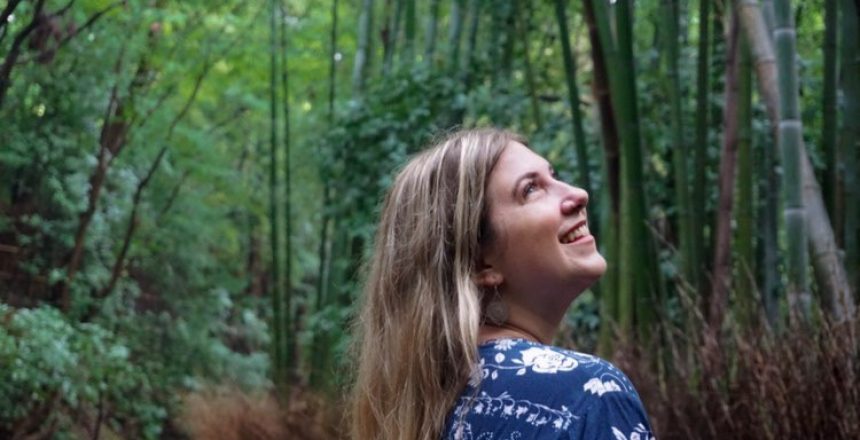It’s now already February 2020. I’m currently writing to you from beautiful Lisbon, Portugal: my first stop in my second year of “slow-mading” around the world.
Last year was a journey. I started 2019 with a plan to go to Chicago to visit a friend, Hong Kong to visit family and China to visit friends. I had about a month or so mapped out and then my intention was to wing it. Well, winging it eventually turned into travelling throughout Malaysia, Singapore, Thailand, Cambodia, Vietnam, Japan, South Korea, Laos, Indonesia and Sri Lanka.
*…and deep breath*
Saying this list is part in-parcel to talking about this lifestyle. It sounds like the trip of a lifetime – something that you hear about somebody saving up for – taking a year sabbatical and travelling the world. However, it wasn’t really like that for me. I will go so far as to say that without a doubt, last year was the best year of my life thus far. I’m owning this cliche phrase with power because I feel it, for reasons that I want to share with you more here. Because working in the beginning phases of a freelance creative career while travelling presented me with a pulse I had never experienced before.

It’s no secret that remote work is becoming more of a possibility, drastically changing the traditional dimensions of work and travel. People take on all sorts of terms: Digital Nomad, Location Independent, Freelancer, Remote Worker, Expat, Long-term traveller, etc. At the surface, these terms all have a common theme of flexibility and travel. But what I’m coming to realize is the purpose, lifestyle and lessons differ from person to person. My experience does not perfectly mirror anyone else’s. In fact, “Digital Nomad” may be one of the biggest umbrella terms I have come across. There is no “textbook” way to do this. Thus far, I have met individuals of all ages, backgrounds, cultures and work industries. It’s been a reminder in the implications of generalizing, and coming up with a set of characteristics that defines a trend, movement or group of people and acting as though that is static or truth. When in reality, humans are much more nuanced.
Everybody seems to mould their own way; I know I certainly have. My first year as a Digital Nomad was inextricably raw and real. I let go of older versions of myself and stepped forward into a lighter present, and more open-hearted future. Here are some of the biggest lessons I learnt – lessons I’m still learning:
1. Letting Go and Staying Open
One of my favourite quotes by bell hooks reiterates a sentiment that I have been reflecting on a lot lately:
“A generous heart is always open, always ready to receive our going and coming. In the midst of such love we need never fear abandonment. This is the most precious gift true love offers – the experience of knowing we always belong.”
Life moves faster on the road. Transitions are more apparent. Change is the norm. The connections you make with community and individuals is deep but quite transient. As a result, the natural initial tendency is to hold back, especially if we’ve really connected with people somewhere before. It can be challenging to consistently engage with new people because we have to be vulnerable. We have to let our guard down a bit and bring down walls in order to find deep connections. I’ll admit, even as an extrovert, being social can definitely spiral into a draining path.
But that’s not until I learnt to let go.
Now, I don’t mean confusing letting go with forgetting. I learnt pretty quickly and bluntly that there is an endless number of people we can bond with. There is infinite possibility to connect with another human being and feel that mushy sense of belonging…only if we stay open to it.
I learnt that if I’m always too stuck in the past and comparing potential new relationships to old ones, I was judging somebody before even letting them be. I learnt that letting go can offer a sort of positive detachment – one where I cherish the connections I’ve made without giving power to the limits that it can bring to new ones. I learnt to find a balance to appreciate the old and the new. In doing this, I was intentional about being open-minded to each new person. The love that I already had with me never felt gypped. It’s hilariously simple: allowing more space to love just adds more love.
2. Living in the Present
This lesson really piggy-backs off the first one. In my past truth, I was a hardcore planner. I found comfort in knowing my schedule and making plans for the future. Moreso, I pretty much based ALL of my present feelings and decisions based off of projections of events that had not happened yet. But I’m not undermining the importance of this either. There is significance to making plans and setting goals. I just learnt how unsustainable this habit is for living.
When you’re on the road, you can’t predict or plan for a lot. You can be prepared in some ways but there is a lot that can change: bus timetables, people, weather, currencies, time. Oh, does time feel even more precious when you’re much more heightened to it. I learnt to surrender to the present moment and all its raw charm. Living in the present allowed me to not feel discouraged by circumstances outside of my control. It allowed me to be spontaneous. As a result, I let go of my need to be in control of everything and accepted the flow of what was. This mindset turned my year into one of heightened senses, deep gratitude, meaningful friendships and enchanting romances (this one is something I haven’t publicly talked about a lot but they definitely happen and they also framed my year in many ways).
3. Language is Powerful
During my first year on the road, I quickly learnt how powerful language is, both verbal and non-verbal.
Non-verbal seems so straightforward. But when you are more out of your element and can’t fully rely on your words, it can be a fumbling process. Throughout my travels, I’ve learnt for the most part that offering a genuine smile and emitting patience is a universal language of acceptance. Whether it was trying to order food in China, taking GrabBike in Vietnam, riding the train in Sri Lanka or sharing sake with my Japanese friend’s father, using these tools to connect despite the language barrier will be welcomed and then reciprocated by the other. However, the real cherry on top is putting in effort to speak some of the local language. Trust me, it goes a long way.
It’s very common for people to give advice and opinions on places. “Northern Vietnam is so much better than Southern Vietnam” or “You can skip that place; there’s not much to do there” or simply “that place sucked”. Why have we become so lazy with language?
All of a sudden, I observed other travellers and individuals being so influenced by previous opinions, that they would go into a situation or destination immensely swayed by what they heard. I’m not particularly surprised because words are influential. They inspire us, guide us, and leave impressions. It’s normal to have favourites, places that impacted you and experiences that were unforgettable. But I found myself quickly advocating against the sweeping negative generalizations, and challenging people to use different language to steer the impression. Rather than saying “skip this place”, saying “I liked _____ and disliked ______ for these reasons….” Especially when it comes to travel. The language we use has serious consequences in our external realities. We all have such unique experiences and conditions when we visit a place, but we have to remember to use respectful language. Everywhere is somebody’s home.
4. Curiosity is Transformative
Ever heard the saying “Curiosity Killed the Cat”? Well, I’m here to say that curiosity made me feel more alive. At some point in my time in Vietnam I came across another traveller who was working as a teacher in Thailand. She briefly recounted showing her young class a video of a caterpillar turning into a butterfly and recalling how awestruck the kids were by it. This visual shook me to my core. When was the last time I saw a butterfly with that sense of wonder, or anything for that matter? It gave me a fresh lens to look at travel. A lens in which I’ve never fully experienced my limit of mountains, temples, food, oceans – anything. Where I’m always open and excited to receive new knowledge and learn more about people and places.
I learnt that by stepping into a new day, experience or new encounter with a fresh set of eyes, as if to see things for the first time, was the key to not feeling stagnated but moved. It was influential in re-shaping my mindset from one of repetition to gratitude and enchantment.

5. Goodbyes are Beautiful
This lesson is an emotional one. But I’m an emotional person. A BIG feeler. It’s a quality I’ve really surrendered to, because I don’t think my life would be as magical and dimensional as it has been without being brave with my emotions. I don’t know exactly how many goodbyes I have experienced as a traveller, or even in life. They used to make me really sad, and to a degree they still do. But I’ve learnt to approach them as a gift. How lucky am I to feel this love and connection during my time on earth. How lucky am I to have known you? I couldn’t imagine my journey without having had our “hello”. Each and every emotional goodbye is just proof to me that I’ve loved hard and big.
Thanks for reading.
Keep Loving,
Lydia

